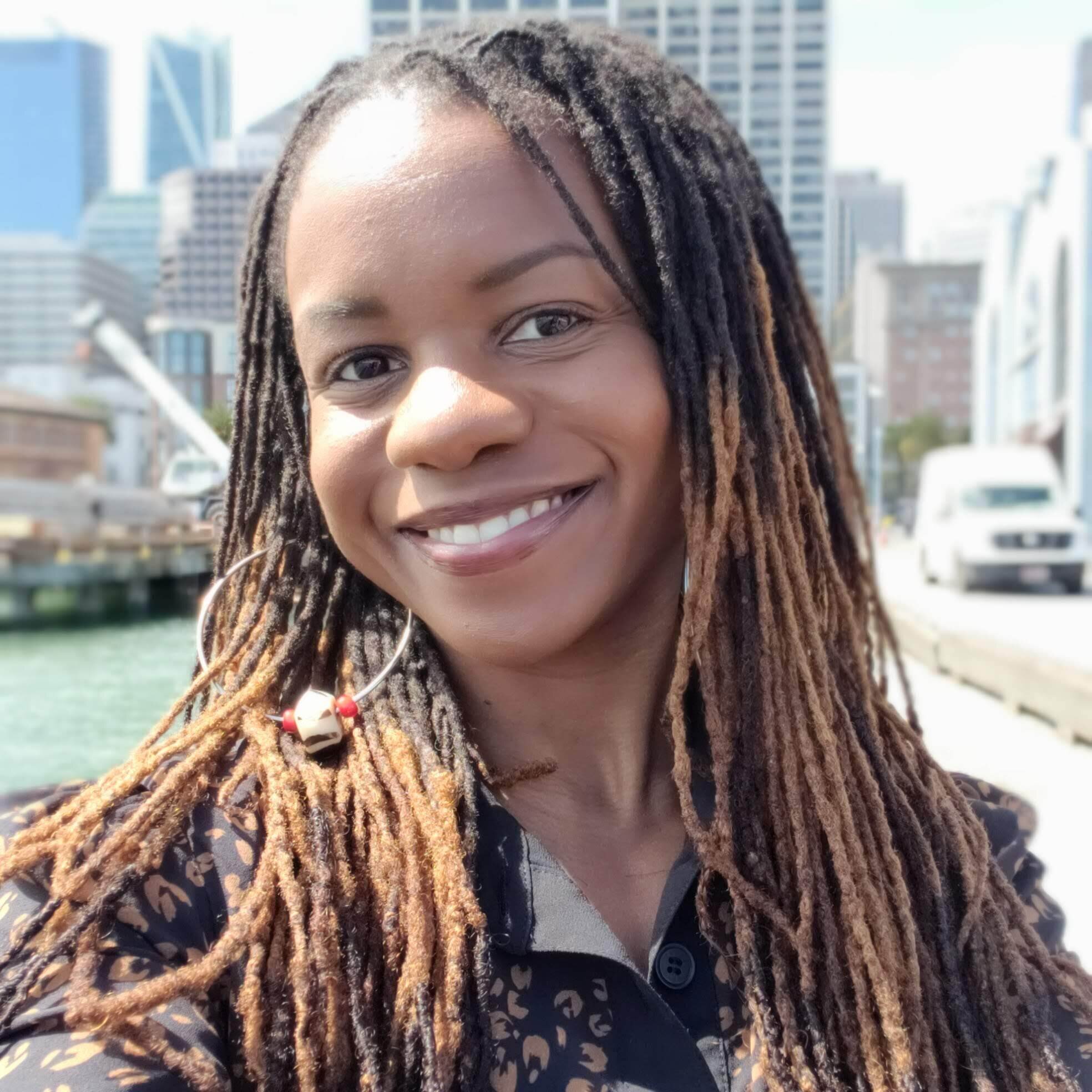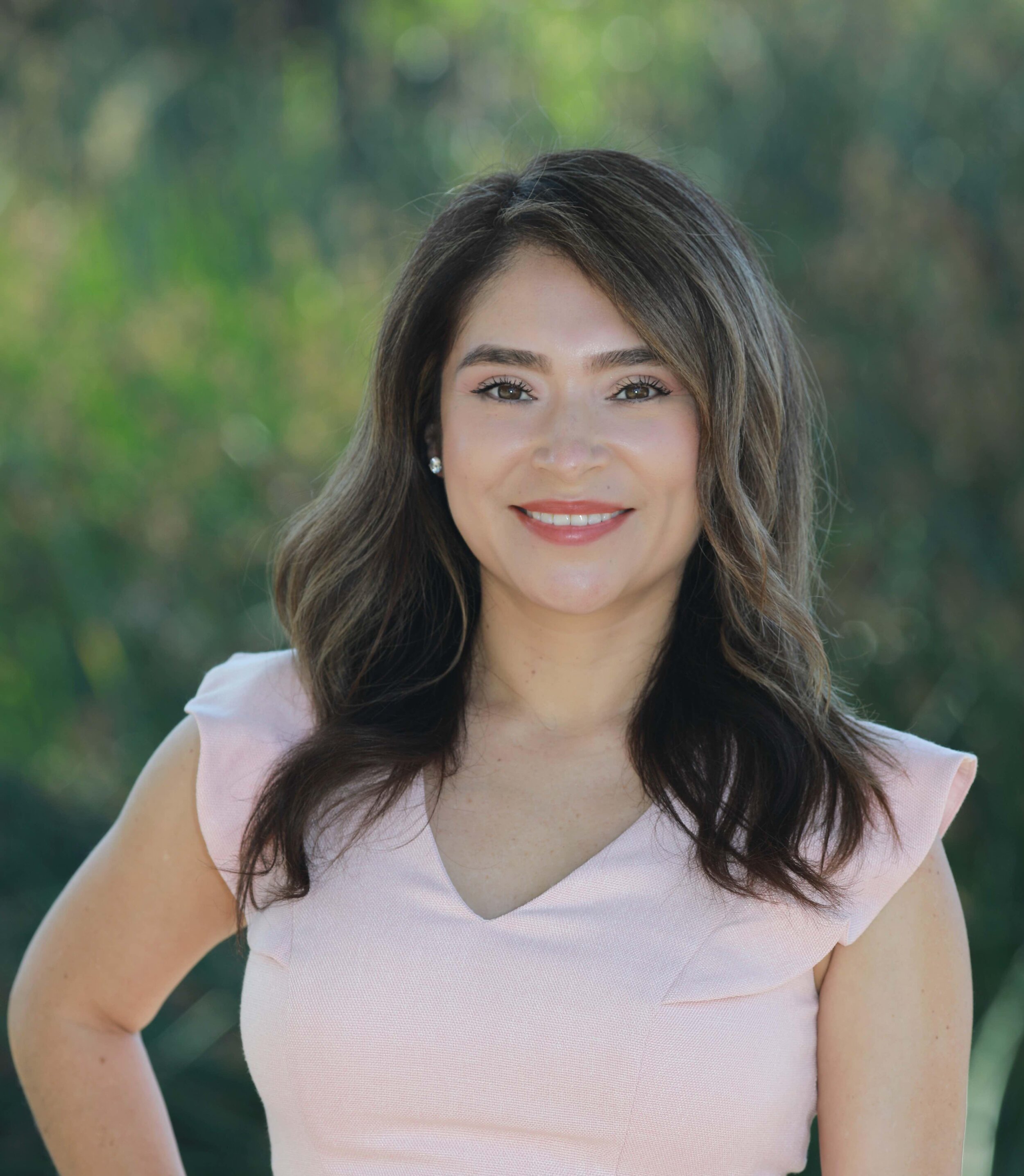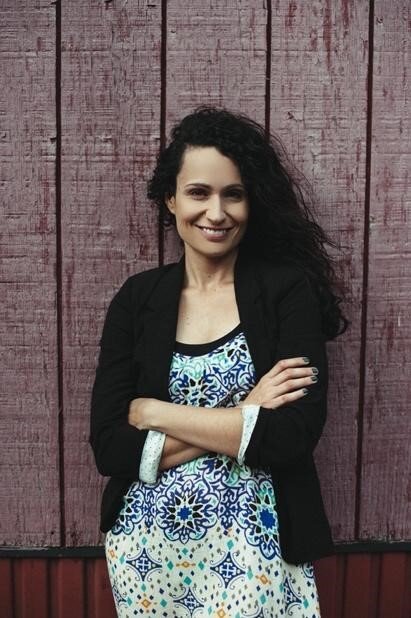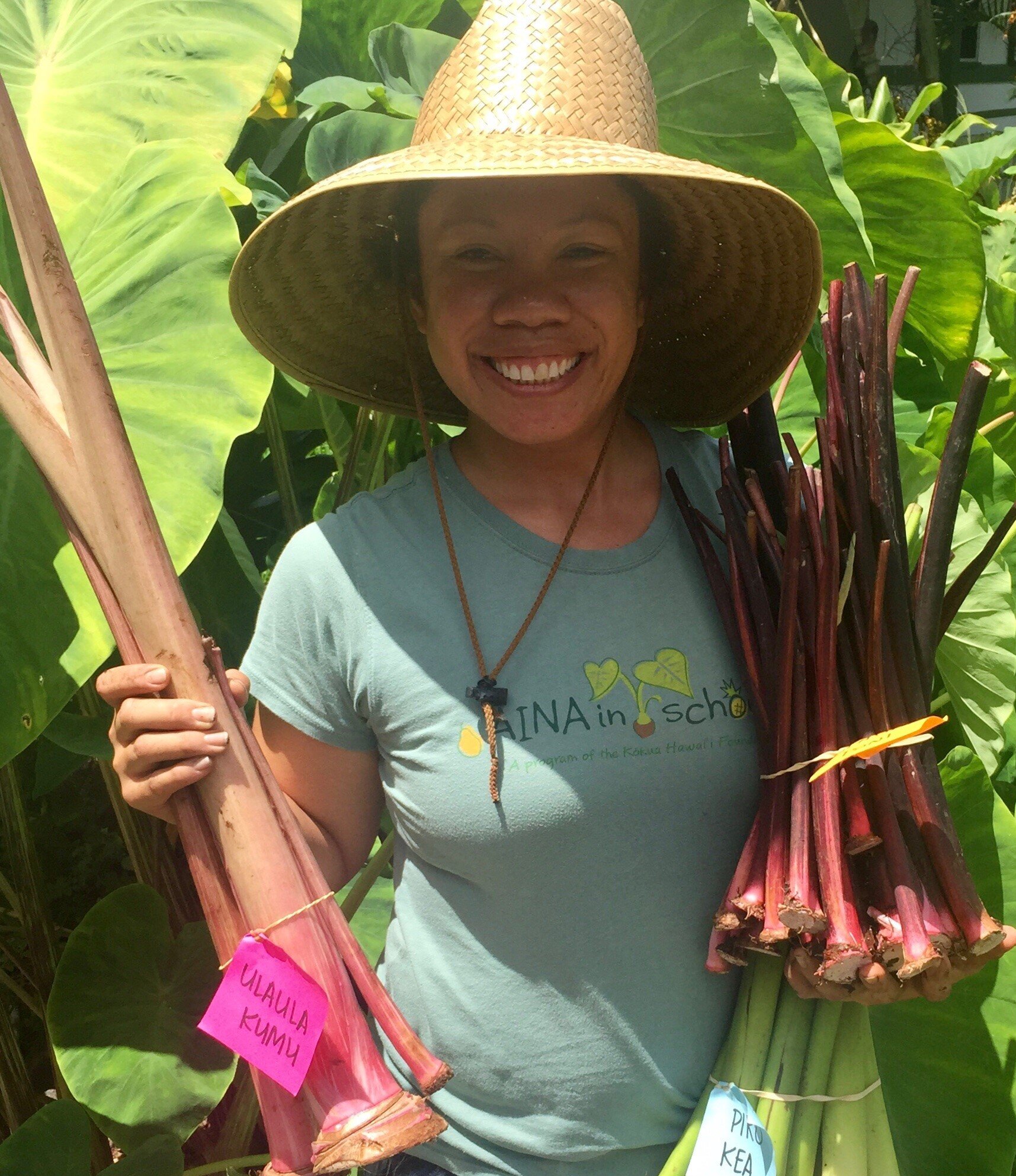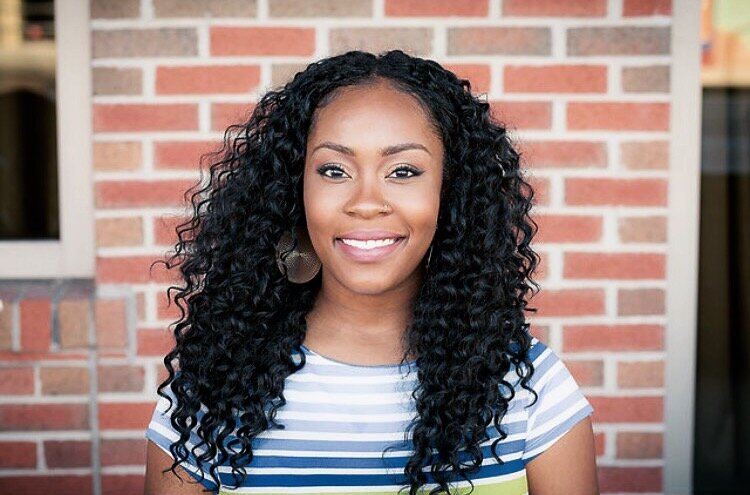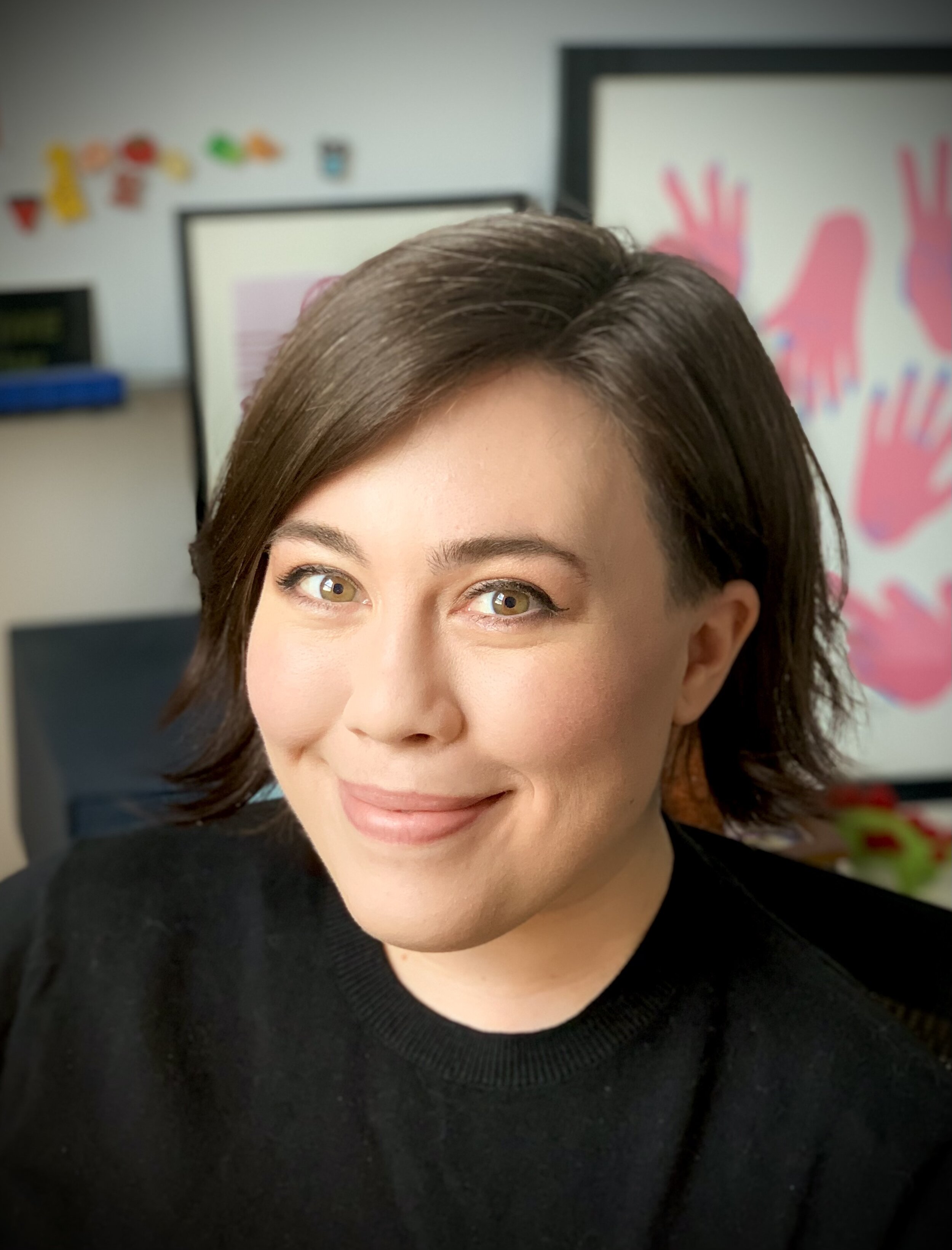2021 Curriculum Inquiry Writing Fellows
Muna-Udbi Abdulkadir Ali
Muna-Udbi Abdulkadir Ali (she/they/we) is an Assistant Professor of Sociology & Criminology and Justice Studies at California State University San Marcos. Ali completed her Ph.D. in Curriculum & Pedagogy at the Ontario Institute for Studies in Education (OISE) at University of Toronto in 2020. Trained as an interdisciplinary scholar, her primary research interests include diverse fields such as Black studies, critical race studies, postcolonial studies, Black feminist studies, criminology, transnational feminism, queer studies, public pedagogy, and public policy. Ali’s research explores issues of gender, race, class, criminality, surveillance, and citizenship, as it manifests for Black refugee communities. Outside of academia, Ali is a community worker, curriculum and policy consultant, researcher, and anti-oppression educator. She has worked in education and curriculum development in Canada, United States, Kenya, and Somalia.
Tashal Brown
Tashal Brown is an Assistant Professor of Urban Education and Secondary Social Studies at the University of Rhode Island. She holds a Ph.D. in Curriculum, Instruction, and Teacher Education from Michigan State University, specializing in race, culture, and equity in education. Her research centers on critical literacies, Black feminist and women of color theories, and interrogation of power and identity in K-12, community-based learning spaces, and teacher education. Tashal’s research is shaped by her experience as a former K-12 school teacher, her commitment to advocating for girls of color, and changing the social conditions that impact their lives in and beyond school settings. Notably, she seeks to listen to the questions youth pose about their lived experiences and their visions for a more just society where they may live and thrive with joy.
Claudia Diera
Claudia Diera is an assistant professor of critical pedagogy in the department of Liberal Studies at California State University, Los Angeles. Her work focuses on issues related to student and community efforts to leverage educational equity and change both at the school and district levels to inform educational leadership and policy. Her scholarship commits to ensuring that students from underrepresented communities are afforded access to learning environments that are supportive of them and that their narratives of themselves and their communities are highlighted and centered. She was a high school social studies teacher in Los Angeles prior to obtaining her PhD in education with a focus on urban schooling at UCLA.
Raquel Jimenez
Raquel Jimenez is a PhD candidate at Harvard University and a Boston-based educator. Raquel’s work focuses on young artists and the creative learning communities that support them. This interest is reflected in her dissertation research, an ethnography that examines how youth engage with public artmaking practices to reimagine the post-industrial forces undermining their community, and how community arts education structures this process. Raquel teaches courses on art and culture at the Harvard Graduate School of Education, collaborates with local artists and cultural organizations on public art initiatives, and curates participatory community arts programs at the intersection of art, education, and cultural organizing. In 2018-2019, Raquel co-chaired the Harvard Educational Review where she edited (alongside Sarah Bruhn) “Portraiture as a Method of Inquiry in Educational Research,” a methodological symposium on the uses of portraiture in critical educational research. Her work is supported by the Ford Foundation and the National Academies of Sciences, Engineering, and Medicine.
Summer Maunakea
Dr. Summer Maunakea is an Assistant Professor of Native Hawaiian and Indigenous Education and Leadership at the University of Hawaiʻi at Mānoa, College of Education. Her research is focused on ʻāina-based pedagogies, Indigenous land-based education, and Indigenous research methodologies.
Amber Neal
Amber Neal is a doctoral candidate in the Department of Educational Theory and Practice at the University of Georgia with a focus on Teacher Education and Critical Studies in Education. Informed by her own experiences as a Detroit Public School (DPS) student as well as appointments as a social worker and public elementary school teacher, Amber is committed to preparing the next generation of teachers to address structural inequality, (re)member Black radical traditions, and utilize intersectional analyses and humanizing pedagogical approaches. Amber’s interdisciplinary research agenda follows several overlapping strands of inquiry, honoring the historical legacy, contemporary manifestations, and futurist imaginations of Black education. Areas of research interest include but are not limited to theorizations of Blackness and interrogations of anti-Blackness; Black feminisms and education; abolition; and spirituality in education. Amber is also a Fulbright scholar, selected to explore the sociopolitical, cultural, and educational landscapes of Thailand and Tanzania. In her spare time, Amber enjoys patronizing all forms of art (visual, graphic, performing, etc.), traveling abroad, and visiting Black heritage sites.
Hanadi Shatara
Hanadi Shatara (she/her) is an Assistant Professor at the University of Wisconsin-La Crosse. She received her doctorate in Social Studies Education from Teachers College, Columbia University and primarily teaches and supports pre-service teachers in critical social studies and social justice education. Her research focuses on critical global education, teacher positionalities, the representations of Southwest Asia and North Africa, with emphasis on Palestine, in education, teacher education, and Palestinian teachers in the United States. Prior to earning her doctorate, Hanadi was a middle school social studies teacher in Philadelphia public schools.
Addie Shrodes
Addie Shrodes (she/they) is a PhD candidate in Learning Sciences in the School of Education and Social Policy with a graduate certificate in Gender and Sexuality Studies at Northwestern University. She is interested in literacy, language, and learning with digital media, focusing on everyday critical literacies in LGBTQ+ digital life. Her scholarship and teaching centers sociocultural theories of learning and interdisciplinary queer and trans thought, capaciously defined, that considers gender and sexuality as it foregrounds other axes of power or identities, primarily race, class, dis/ability, coloniality, and Indigeneity. Their dissertation research considers how 21 trans and queer teens learned practices of livability through everyday digital activities. By practices of livability, they mean routine acts to foster humor, hope, and radical joy that youth learn to create livable lives in unlivable worlds -- worlds shaped at every turn by interlocking structures of domination that include race, class, dis/ability, coloniality, gender, and sexuality. She examines how survival-rich practices of trans and queer digital activities also gesture to possible elsewheres -- expansive ways of being and organizing social life. Their work has been featured in Reading Research Quarterly and by the International Literacy Association.


